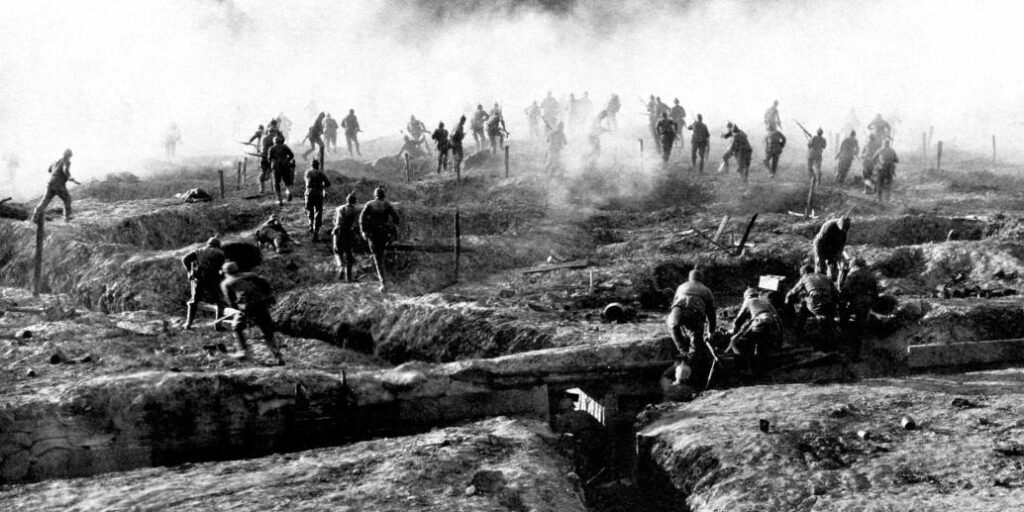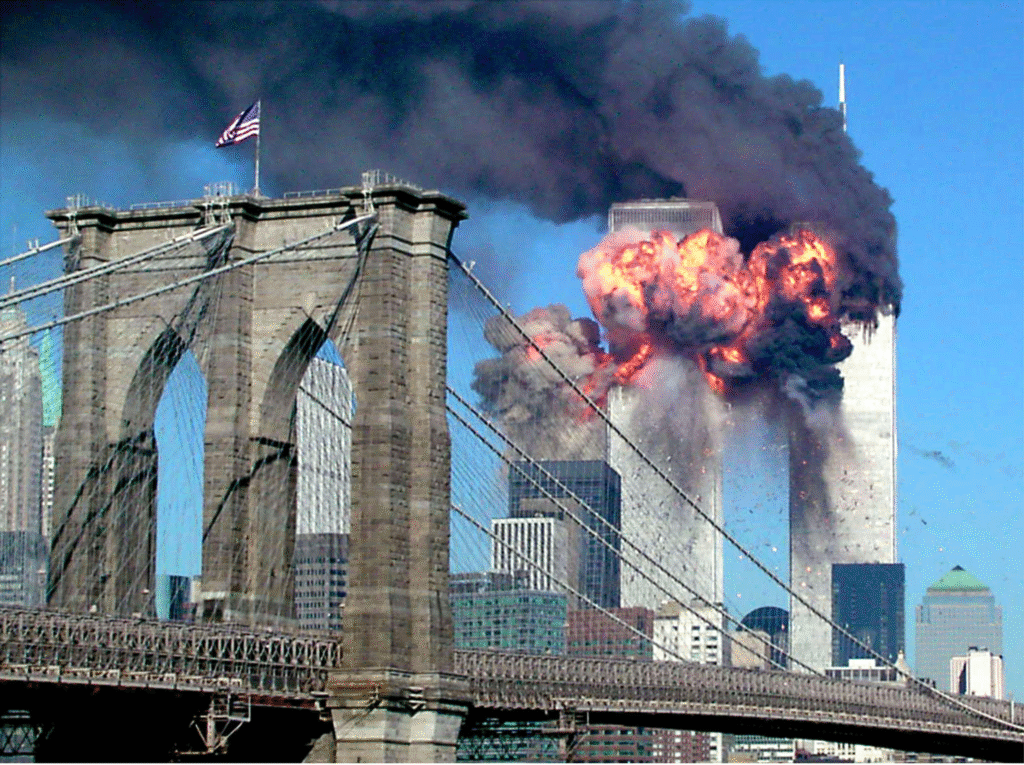The nature of global politics at present has its roots in the past. It grows from centuries of conflict, cooperation, revolutions, and ideological shifts. Several historical events continue to shape today’s world order. Therefore, UPSC aspirants must understand these events and their long-term consequences. The article explains the most important historical events that still influence global politics today.
Why Historical Events Matter in Contemporary Global Politics:
History sets the foundation for modern diplomacy and conflicts. Wars shape borders. Alliances are shaped by revolutions. Institutions are shaped by global crises. Therefore, to understand the nature of global politics and geopolitical competition today, we must study the turning points of yesterday.
This article highlights major historical events that still guide foreign policy, global institutions, and nation-state’s strategic behaviour.
- The World Wars and the Rise of Modern Power Structures:

World War I – The End of Empires:
- World War I changed global political geography. It destroyed old empires like the Ottoman, Russian, German, and Austro-Hungarian empires.
- In addition, it created new borders and new nation-states. It sowed seeds of global nationalism.
- These outcomes still influence Europe, West Asia, and Eastern Europe. However, many current conflicts stem from borders created after World War I. Therefore, the event continues to shape global politics.
World War II – The Rise of Superpowers:
- World War II reshaped the world order. The United States and Soviet Union emerged as superpowers.
- In addition, Europe lost global dominance, and the United Nations was born.
- The war also exposed the dangers of fascism, militarism, and racism.
- The ideological battlelines created after 1945 still influence international relations.
- Further, many alliances and security systems emerged from this era. Therefore, the legacy of World War II shapes modern geopolitics.
2. The Cold War and the Division of the World:
The Cold War created a bipolar world. Furthermore, the US led the capitalist bloc and the USSR led the communist bloc. Both competed in ideologies, technology, defence, and global influence.
Impact of these Historical events on Global Politics
- NATO and the Warsaw Pact created military blocs.
- Proxy wars changed Asia, Africa, and Latin America.
- Nuclear weapons shaped global security doctrines.
- Space competition pushed technological growth.
- Many developing nations joined the Non-Aligned Movement.
Cold War rivalries still influence Russia – US tensions, NATO expansion, and global security debates. Therefore, the Cold War remains a major historical force in modern international relations.
3. Decolonization and the Birth of New Nations:
Between 1945 and 1975, many colonies gained independence. Moreover, this era created new nations in Asia and Africa. Furthermore, It empowered local identities and political sovereignty. As a result, it led to the emergence of new nation-states.
Why It Still Matters:
- Borders inherited from colonial rule cause territorial disputes. E.g. India – China border dispute.
- Former colonies still face development challenges. E.g. African nations.
- In addition, issues of ethnicity, language, and governance remain influenced by colonial histories.
- Global South politics emerged from this struggle.
Decolonization shapes diplomacy in the UN, Commonwealth debates, and India – Africa relations. Therefore, this event remains central to contemporary politics.
4. The Formation of the United Nations:
The UN was created in 1945 to maintain peace. However, its role remains central to international governance.

Influence on Today’s Global Politics:
- UN Security Council decisions shape global conflict responses.
- UN treaties guide climate action, refugee protection, and human rights.
- Peacekeeping missions stabilize fragile regions.
- WHO, UNESCO, and FAO influence global development agendas.
- The UN reflects post – World War II power structures. Therefore, debates on UN reform continue to dominate global politics.
Also read – Special Agencies of United Nations
5. The Creation of Israel and the Arab–Israeli Conflict:
Israel was established in 1948. Further, the event reshaped West Asian politics. However, it triggered multiple wars between Israel and the Arab states. In addition, it created the unresolved Palestine question.

Long – Term Impact on global politics:
- West Asia remains geopolitically sensitive.
- Energy security policies depend on West Asian politics.
- Global powers maintain strategic interests in the region.
- The conflict influences UN debates and global alignments.
- India, too, balances relations with Israel, Palestine, and Arab nations. Therefore, the conflict still shapes regional and global diplomacy.
6. The Chinese Communist Revolution, 1949:
After China’s Communist Revolution, China became a major actor in the global politics. China shifted from internal chaos to strong central authority.
Impact on Global Politics:
- China became a permanent member of the UNSC with veto power.
- China transformed into a global economic power primarily through a series of economic reforms initiated in 1978.
- China’s rise fuels strategic competition with the US.
- South China Sea disputes shape Indo – Pacific politics.
- The 1949 revolution still guides China’s global ambitions and ideological identity. Therefore, it remains a defining event in world politics.
7. The Partition of India and Pakistan (1947):
The Partition created India and Pakistan. It also triggered lasting tensions in South Asia.
Influence on world politics:
- India – Pakistan rivalry affects regional stability in South Asia.
- Border disputes like Kashmir continue to shape diplomacy.
- Nuclear deterrence defines South Asian security.
- Cross-border terrorism affects India’s foreign policy.
The Partition still influences India’s regional strategy, defence policies, and neighbourhood diplomacy.
8. The Cuban Missile Crisis (1962) and Nuclear Politics:
The Cuban Missile Crisis brought the world close to nuclear war. Furthermore, the crisis created strong norms on nuclear deterrence.
Impact on present global politics:
- Nations rely on deterrence for security.
- Nuclear treaties shape global disarmament.
- Nuclear proliferation remains a major issue.
- The crisis influences India’s nuclear doctrine and restraint.
- The event demonstrated the dangers of nuclear escalation. Therefore, it continues to guide global military strategies.
9. The Iranian Revolution of 1979:
The Iranian Revolution changed West Asian geopolitics. In addition, it replaced a pro-West monarchy with an Islamic Republic.
Global Impact:
- Iran became a major regional power.
- The revolution influenced global Islamic politics.
- US – Iran relations remain tense.
- Energy markets still react to Iran’s actions.
- The event reshaped alliances in West Asia.
10. The Fall of the Soviet Union (1991):
The collapse of the Soviet Union ended the Cold War. Further, it created new states in Central Asia and Eastern Europe. It also shifted the world towards unipolarity under the US.
Impact on Global Politics:
- NATO expanded eastward, causing tensions with Russia. Its eastwards expansion still kept the region unrest. E.g. Russia – Ukraine war.
- The US became the sole global power for decades.
- Ukraine and Georgia conflicts emerged from this realignment.
- Russia rebuilt its influence under Vladimir Putin.
11. Globalization and the Rise of the WTO (1995):
The creation of the WTO accelerated global trade integration. Globalization reshaped economies and markets.
Its impact on global politics:
- Global supply chains determine economic stability.
- Trade wars affect economic growth.
- Countries compete for market access and investment.
- India fights for fair trade rules and strategic autonomy.
12. The 9/11 Attacks and the War on Terror:
The 9/11 attacks changed global security frameworks. The US launched the War on Terror and countries increased counterterrorism cooperation.

Impact on global politics:
- Global security strategies follow post – 9/11 norms.
- Terrorism remains a major policy concern.
- India – US security cooperation grew significantly.
- Afghanistan and West Asia politics remain volatile.
- 9/11 continues to influence immigration policies, national security laws, and global surveillance.
13. The 2008 Global Financial Crisis:
The 2008 economic crisis reshaped global economics. Further, it exposed vulnerabilities in financial systems.
Impact on today’s global politics:
- Countries adopted stronger financial regulations.
- China gained economic influence.
- Rising inequality became a key global debate.
- Developing nations demanded fairer global financial systems.
- Countries like India strengthened monetary supervision and banking reforms.
Conclusion:
These historical events still drive global politics. Moreover, they influence diplomacy, conflicts, alliances, and economic decisions. UPSC aspirants must understand these events because they shape India’s foreign policy and global strategies.
Sources:
- https://www.diffen.com/difference/World_War_I_vs_World_War_II
- https://www.britannica.com/event/World-War-I
- https://en.wikipedia.org/wiki/Partition_of_India
Historical events shape borders, alliances, institutions, and strategic behaviour. Additionally, understanding them helps UPSC aspirants analyse present-day diplomacy and global conflicts.
Events like the World Wars, Cold War, Decolonization, formation of the UN, 9/11 attacks, and the fall of the Soviet Union have the strongest influence on today’s global order.
Decolonization created new nations with unresolved borders, ethnic issues, and development gaps. Furthermore, these factors continue to drive disputes, UN debates, and Global South diplomacy.
Cold War rivalries shape Russia-US tensions, NATO expansion, nuclear doctrines, and strategic competition in regions like Eastern Europe and the Indo-Pacific.
India’s diplomacy, security strategy, nuclear doctrine, neighbourhood policy, as well as global partnerships are shaped by events like Partition, Cold War, decolonization, and globalization.











